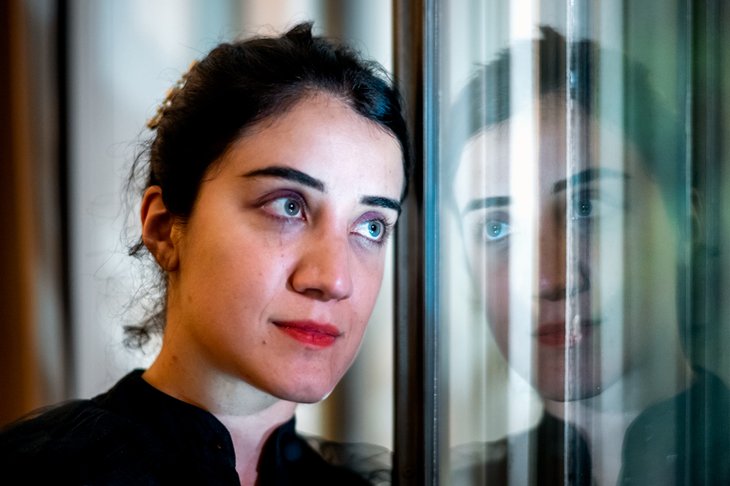"Music in my work is a force that can aim at that this utopia of freedom"
Article

Visual artist and Master in Music by the Princeton University (USA), Vivian Caccuri was at the Forum of the Future, in Porto, to present her work "Febre-Amarela", which delves on the place of immunity as a way to hope in the future. The artist agreed to share with Porto. what inspires her creative processes.
Vivian starts by saying that "everything is related to how I became an artist. I come from a family of musicians, and my creative nature has always been of both worlds: my musical instinct and my wanting to play instruments, take music in and be part of collective musical events, all the while wanting a more recollected artistic process, rather subjective, focused on visuality, like drawing, which is a more solitary activity".
This project that the artist brought to Porto, in the scope of the Forum of the Future, is described as a lecture-performance, which also includes an individual exhibition materialised in objects: stripped mosquito nets, embroidered with sketches by the artist herself, where Vivian "puts on a vison of Brazil, but a vision of the future, one where there is a daily living with mosquitos, there is no longer that space division and people have to wear special clothes to be able to coexist with mosquitos. Some of this clothes are part of the exhibition."
To the question whether music and artistic creation can change /shape behaviours or help understand identities, Vivian clarifies with the circumstance that led her to create "Febre-Amarela"; Vivian thought: "And what will happen when all this is gone?"
From the viewpoint of an artist's role in society, Vivian Caccuri starting point was the immunity of this disease and this is rather interesting because "those who are born in the context of the yellow fever and survive, will always be immune to this disease, they will grow stronger; so, for the artist, "one day, when Brazilians recover from this epidemic and great negativity, they will be stronger, as this (the performance) is a way of understanding that great challenges sometimes lead to building knowledge, and also emotional knowledge, to get through major political and social challenges. It is a way of being optimistic in a moment that is rather difficult, as that light-heartedness is no longer within people, we can see it".
"So, what I can do, as an artist is not simply show the wrong things, but rather provide people with some kind of message of hope, courage for their daily lives. And this is the role of the artist, as well. It takes courage to create, so if I can pass on some of that courage to people, I will do it through my work."
From that work, Vivian projected another work, using the idea of candles combined with a bass tone to speak about religious music, catholic music.
Her research led her to the first music score on sheet, in the western world: the Ambrosian chant, which are the first Chants, before the Gregorian Chants and, according to Vivian, "there is no poly-harmony, there is no counterpoint. So, its's a simple harmony. Back then, music was used as a dissemination tool of the Neocen Church's message, so as to win more believers", explains the artist.
"My goal was to see how was music was used as a social and political tool, to manipulate spirits and faith and also to legitimise a huge pressure. So, just as in contemporary times, music has this power to make someone vulnerable and to receive a certain message. Music in my work is a force that can aim at that this utopia of freedom."
Regarding what moves her to create, Vivian clearly defines it: "there was a moment when this stroke me as a contradiction; I thought I had to be one thing or the other, but as soon as I began studying at the university, I decided to embrace both and to be both at the same time. It was a way of combining two characteristics that exist in me and see where it leads".
The multifaceted artist's work puts together elements that are separated, apparently; as explained by Vivian, "What has Yellow fever got to do with catholic music or Bolsonaro? Therefore, what I do is a sort of braid that connects it all. My audience can, then, start to also sharpen that type of perception and maybe realise that not everything is what it seems, not everything is that simple and swift, and that things can have a different explanation, they don't need to be the way they are."